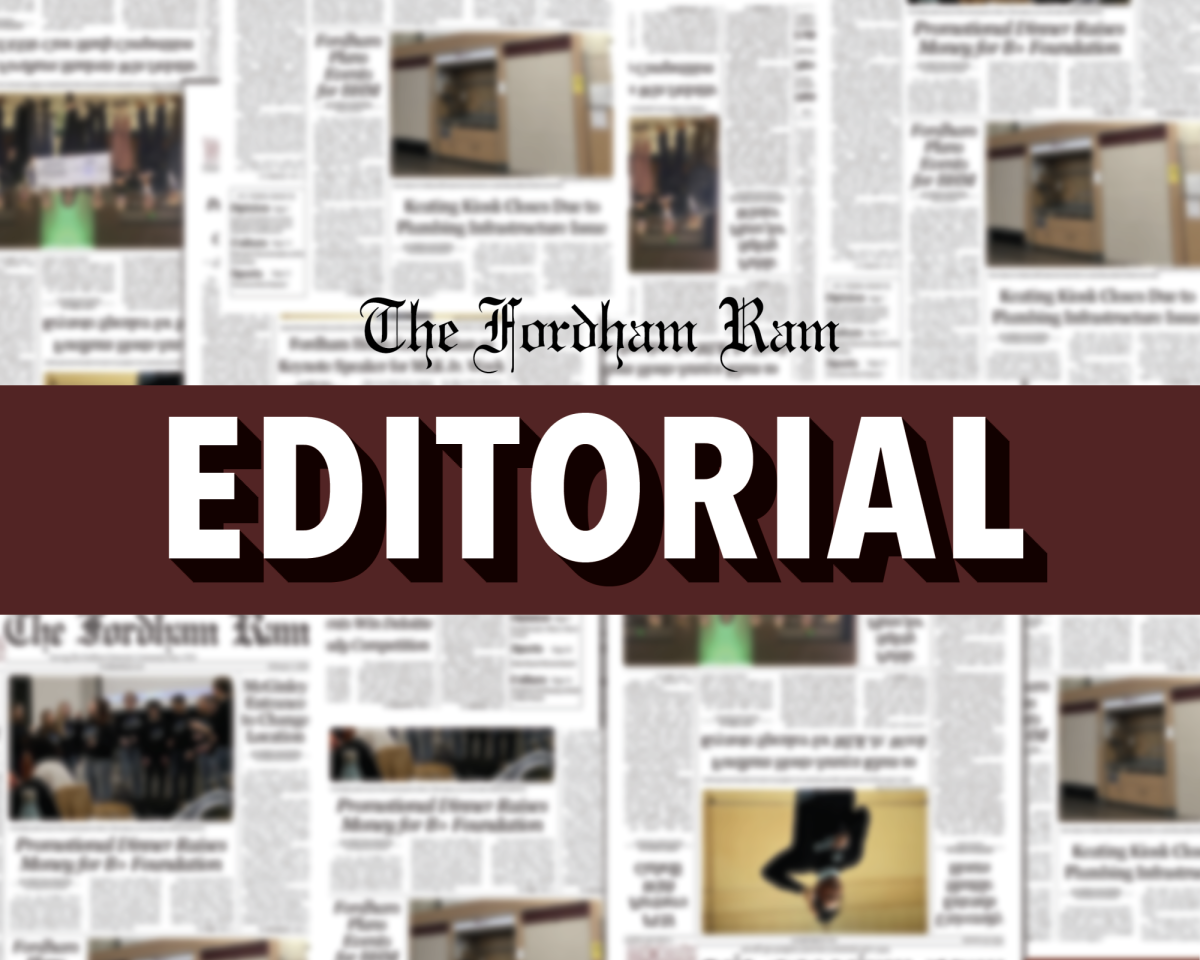We have all seen the protests, read the emails and viewed the Instagram posts. All of this is in response to negotiations between Fordham and the Fordham Graduate Student Workers (FGSW). Last week, 98% of FGSW voted to authorize strikes, shifting negotiations into a new gear. Now, the question on all students’, faculty and parents’ minds is “What happens next?” The Editorial Board wanted to hear the views of both the administration and graduate students to gain a deeper understanding of events. We had the opportunity to listen to a press conference held by President Tania Tetlow on April 12 and met with a representative from FGSW named Alfredo Dueñas. After hearing directly from both sides, we have concluded that graduate students deserve a fairer deal.
Let’s look at the status quo to understand why we think this way. Members of FGSW currently teach 7.2% of courses this semester. Last semester, they taught 450 classes, which made up 30% of the classes offered. It would be fair to say most students reading this piece have had at least one graduate student teacher while attending Fordham. First and second-year graduate teaching assistants are compensated by a $27,231 stipend. Third-year-plus students receive a $28,961 stipend. Regarding benefits, graduate teaching assistants are automatically enrolled in the Student Health Insurance Plan (SHIP), which Aetna insurance provides. The Fordham Observer has reported that current healthcare premiums for the plan are $1,427 after the university provides a 67% subsidy. SHIP does not cover dental or vision.
FGSW doesn’t think the status quo is fair at all. They want Fordham to raise their stipend pay to $47,219 over the academic year. In addition, FGSW argues Fordham should offer a premium rate on healthcare, dental, and vision. They also want the school to provide a childcare subsidy of $3,000 per child for graduate students with children below kindergarten age.
What struck us the most from these conversations was the clear disagreements between the two parties on what is deemed fair compensation. The school considers graduate students part-time employees, whereas the graduate students think that term undervalues their work. On its union negotiations page, the university says that graduate students are capped at 19 work hours per week for nine months. When asked about this during our interview, Dueñas stated that the label was inaccurate because it does not include the “personal research” they do. He argued that “personal research” includes important work such as working on their research and attending conferences and colloquiums. He believes these activities enhance Fordham’s status as a research school. The disagreement has resulted in the university and FGSW measuring graduate student’s pay levels differently. Tetlow stated in the interview that Fordham’s data analysis finds they are currently in the middle of the market when it comes to compensation and argued they pay at a higher hourly rate than what is typically paid in the marketplace. FGSW has released its own data stating that Fordham’s stipend rate is near the bottom of the universities they have analyzed.
When looking at the status quo, it is clear to us that graduate students deserve more than the pay and benefits they currently receive. In the press conference President Tetlow stated that they would raise the stipend by 15% and were open to raising it more. Even when factoring in a 15% increase, that would result in around a $32,200 stipend, which is still below what the union wants. Graduate students provide an important service to the school by teaching classes and conducting research. These activities enrich our university’s community and reputation. But for all that hard work, their current stipend is lacking. A yearly income of $28-29,000 alone is not enough to survive as a single person in this city. While the school may disagree with some data FGSW uses to calculate an individual’s cost of living, the New York State Comptroller’s Office says New York City is “one of the most expensive cities to live in globally.” New York City being an expensive place isn’t up to interpretation; it is an objective fact. We think it is only fair that Fordham raises the graduate student stipend to reflect this.
A concern the president raised in the press conference was how raising the stipend would impact tuition for undergraduates. She stated, “Their pay comes from tuition, so we have to balance doing right by students who pay the cost of their education against our desire to pay our people well.” We think Tetlow’s framing of the situation is misleading. Tetlow seems to want to frame this as the union asking for too much from undergraduates. But the sentiment of many undergraduate students is that Fordham itself is asking too much of them. In terms of tuition increase, we think Fordham’s argument would be more persuasive if the school was more transparent with their spending.
The uncomfortable question graduate students are asking Fordham is where the tuition money is going. It’s obvious the money isn’t going to graduate students’ stipends. Graduate students are an essential part of the Fordham community, and this process has made it clear to us that they deserve more than the status quo. That is why we support FGSW, and we hope they can come to a fair tentative agreement with the university soon.





































































































































































































